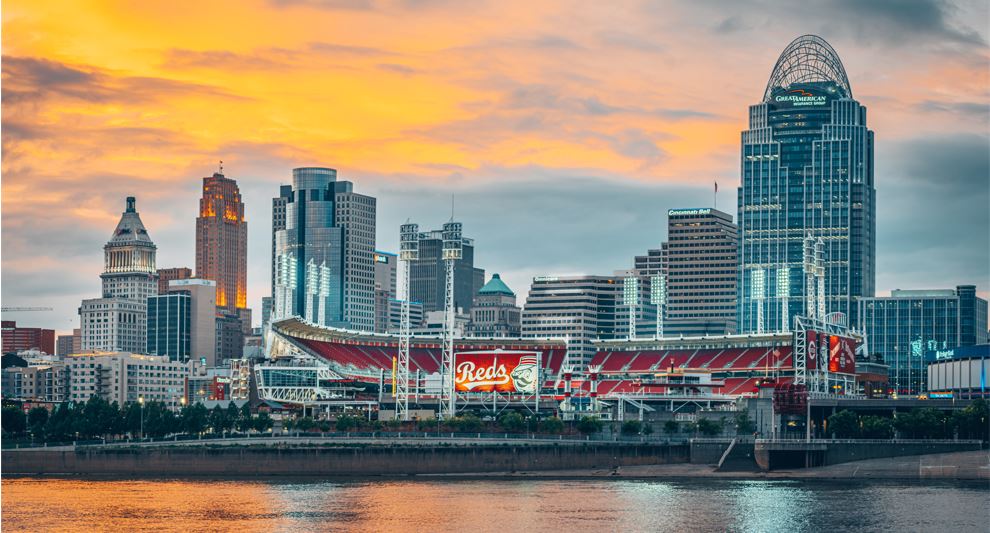Regional Success Doesn’t Happen Without Economic Development Efforts

While you’re likely familiar with the term economic development, you might not be familiar with all that it encompasses. On a broad scale, economic development means different things to different people—some think of job creation while others think of business growth. But economic development is so much more—it’s a holistic approach to growing and sustaining local economies, which creates a plethora of long-term benefits for regional business, people, and communities as a whole.
Let’s take a closer look at all that economic development entails and why it is so critical to regional success.
It’s About Competition and Recognition
More than half of the world currently lives in a metro region, and by 2050 experts predict it will be two-thirds. There are several factors driving people and businesses to metro regions, including employment opportunities, higher pay and standard of living, lower tax burden, transportation, and better access to resources like healthcare, education, skilled labor, and broadband. Other factors include climate change, culture and diversity, and technology and innovation—especially among millennials who will make up 75% of the global workforce by 2025 and are often labeled the demographic engine of urban growth.
When a metro region can no longer offer these advantages, it becomes “forgotten” and eventually distressed, over time resulting in abandoned properties, lower education, poverty and ensuing higher crime rates. But staying competitive doesn’t just happen—it takes policy and advocacy, financial programs, incentives, engagement, and partnership, and even marketing and communications. And all of those are part of the concerted effort that is economic development.
It’s Ongoing Growth and Sustainability
While attracting people and business to a region is all good, having a “build it and they will come” mentality isn’t necessarily enough to keep them there. It’s important that metro regions stay on top of the prevailing political narrative, underlying economic situation, and the collective mindset among both businesses and consumers to continually reform policy and strategy in a way that sustains the relevancy of a region and promotes continued growth. In fact, cities that boomed during the industrial age but failed to change with the times are now facing an unprecedented economic crisis and shrinking populations.
A key part of achieving long-term viability for a region is having a strategic economic development plan with broad stakeholder buy-in that is continually reviewed and updated to ensure it aligns with ever-changing needs—it can never be just “set it and forget it.” That means doing due diligence through ongoing economic and demographic research and analysis; outreach and communication with local business leaders, community partners and elected officials; and staying on top of market trends, opportunities, and potential risks.
It’s Enhancing Community and Quality of Life
Business is business, but ultimately for a region to thrive, it also needs to be livable from a physical, social, and financial perspective—everything that makes a place worth calling home. There are many facets to quality of life and standard of living. It’s access to quality public services, health, and education. It’s infrastructure, transportation, and ease of mobility. It’s affordable housing, lower taxes, and employment opportunities. And it’s even greenspace, recreation, arts and entertainment, culture, and diversity. And when people love where they live, they have civic pride and a desire to participate in the ongoing enhancement of their communities. In other words, people—not just business—play a vital role in regional success.
Economic development professionals understand that all of their activities need to count toward maintaining wellbeing in communities and ensuring overall quality of life for the people. How do they do that? They collaborate with educational institutions, business leaders and partner organizations to create programs that improve access to education and enhance the talent pool. They work to attract better companies to create better job opportunities. They support and promote programs that incentivize revitalization and entrepreneurship to enhance communities. They bring funding opportunities to support startups and small businesses and develop cultural and innovation centers. And the list goes on.
It Takes Resilience, Flexibility and Strength
While these aforementioned efforts are just some of what the economic development experts at REDI Cincinnati and our partners do to ensure the success of our 16-county, tri-state region, we hope this gives you a better idea of what economic development is all about and why it is so critical to our businesses, our people, and our communities. But these efforts aren’t easy—it takes resilience, flexibility, and strength on the part of all regional stakeholders and the support of our local business leaders.
By Kimm Lauterbach, REDI Cincinnati President & CEO
